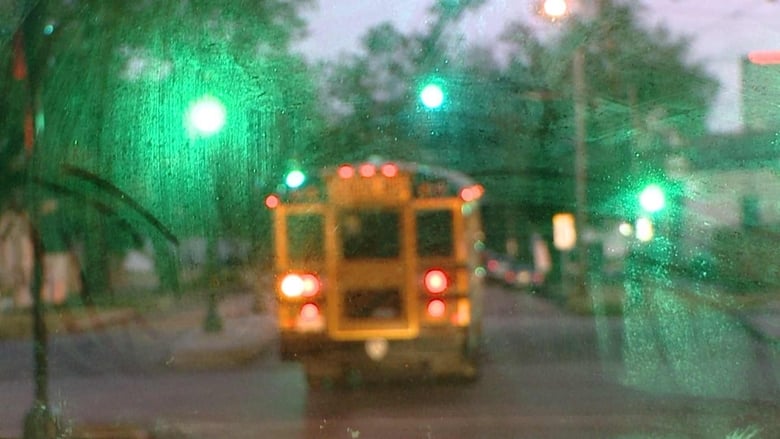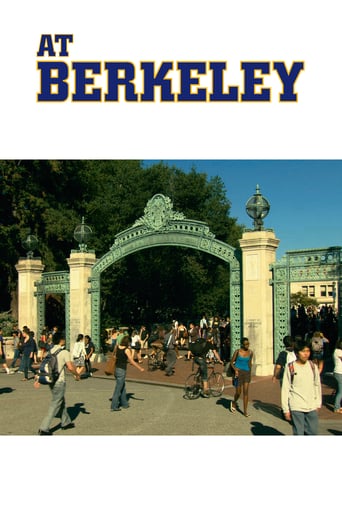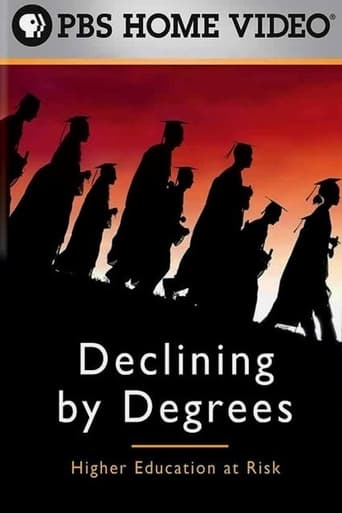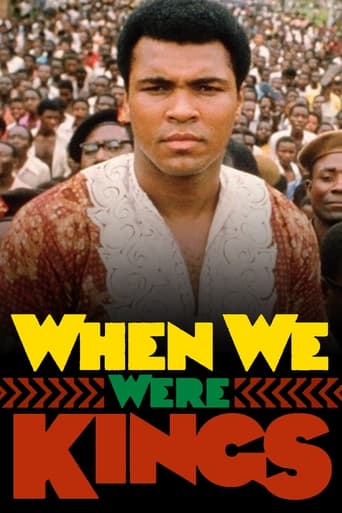Waiting for "Superman" (2010)
Gripping, heartbreaking, and ultimately hopeful, Waiting for Superman is an impassioned indictment of the American school system from An Inconvenient Truth director Davis Guggenheim.
Watch Trailer
Cast


Similar titles
Reviews
I like the storyline of this show,it attract me so much
You won't be disappointed!
Crappy film
There's no way I can possibly love it entirely but I just think its ridiculously bad, but enjoyable at the same time.
Waiting for Superman features a lot of interesting information, but I feel like this documentary spends too much time addressing what the problem is, and not enough time discussing why it's that way or how we can fix it. This movie is worth a watch, but it doesn't live up to the hype surrounding it.
Everyday for five days out of the week children are sent to school to receive an education. The students and parents put faith into the school system hoping that it will provide their kids with a bright future and a successful life. Unfortunately for some families the school system has failed to satisfy to fulfill the faith and hopes of parents and students even after all the many years of what seems to be useless reforms. In the 2010 film Waiting for Superman directed by Davis Guggenheim multiple interviews are conducted to explore the educational system in America through interviews of San Diego students, Washington students, New York students, educational reformers, parents, and teachers. I would rate this film four stars out of five because it portrays the educational system for the way that it truly is while reaching out to the viewers that it is time for a change. The film begins by pointing out the biggest problems in the educational system- we lag behind globally in test scores, the achievement gap is growing, and reforms are failing. According to statistics, the top performers that scored the highest on math and reading test allowed the U.S to rank 25th among other countries. The movie puts emphasis on the fact that the schools are creating bad neighborhoods not that the neighborhoods are creating bad schools. If students are not building up successful individuals then they will not productively give back to the community. The achievement gap in America has been stagnant separating the wealthy from the poor. The poor usually struggle in school and go to schools labeled as "failure factories" because they have low graduation rates and usually teachers who either struggle to help students or teachers who could care less considering the fact that tenure is automatically granted to them. Low performing students in good wealthy public or private schools struggle to catch up so that they don't lag behind, but have a greater chance of graduating just because they go to a rare wealthy school. The reforms are failing starting with No Child Left Behind and all others that resemble it because ultimately they are measuring test scores instead of promoting learning. When watching this movie I was able to believe that it was interesting starting off , but sometimes the order that they explained events made me confused at times. Like sometimes the film would have interviews , then they would just have the narrator giving context and explaining statistics about the schools, or they will give mini history lessons and flashbacks about the system. I enjoyed the ending because it all ended with the lives of the students being explored just as they had explored their lives in the beginning of the film .I believe that this film is great because it sheds light on everything that is happening in the educational system. I even cried during this movie because the pressure that families feel from the school system and the barriers that they face almost seem impossible to overcome.I was appreciative that the movie provided more information on the complexity of the school system like teachers unions and other reforms. I was not happy that they movie did not show or give any possible solutions after proposing about two hours of issues. Ultimately the movie is worth watching because it will educate you and allow you to see things from a different perspective about the educational system in America.
"Waiting For Superman" Gabriela Santillanes Professor Ivis UPP 101 Submitted March 17 2014 Project 3 In "Waiting for Superman" Davis Guggenheim examines the flaws in the school system and its effects on the students and families that are in "failing neighborhoods." We follow five students to see the push and pull factors of how the school system along with the educators are failing to work with the students and communities to meet the proficiency standards or how their opportunities diminish as they move deeper into the system. It also follows other educators, such as Chancellor Michelle Reeves, on the search of ways to improve the system and their realization that there are more obstacles to face besides doing things such as creating charter schools. The primary focus of this documentary is split in that it focuses on the school system failure effects. It also focuses on the effects of how failure or success comes from the quality and effort that a teacher puts in their work; this brings up many discussions and arguments concerning tenure, teachers unions, and societies focus on what's really important. "Waiting for Superman" shows the shift that Chancellor Reeves along with her predecessors and political leaders such as our presidents, which has led up to the examination of many schools all across the country. It brings up and discussed many questions such as are the students being prepared to meet the requirements our country has set; which is answered through the statistics used to measure the standards from the No Child Left Behind program. This focus is important because the issue of success in schools is an issue that many people are aware of, it has been area of concern for centuries amongst our political leaders, but a path to a possible solution has not been found. The No Child Left Behind programs has a standard of 20% to 35% proficiency in reading and math to see if schools are teaching students the basics. When "Waiting for Superman" director sees the numbers and witnesses that there is 12% in Washington DC it asks are the students getting stupider or is there a flaw in the system? This information presented is used to shine light on the main argument that the real problem might be blamed on the failing schools in failing neighborhoods, not necessarily the failing students.One of the interesting arguments made is how children who are in "dropout factories," schools that have more than 40% of its students that don't graduate, are redirected into the streets. One of the educators in the film talks about it is very easy to ask a child how many people he or she knows that went to prison or how many graduated high school; we would find that they would know many more who went to prison. The film informs its viewers that we spend $33,000 per year per inmate every fours years, $132000 in total for every inmate. If a child's family has the opportunity to they can send the child to private school to receive a much better education. If instead of investing the money that we do on inmates and instead use that money to send children to private schools for 13 years we would be saving $24,000 per person. " Waiting for Superman" discusses the redirection of funds to the students so we can then have them go to college and contribute back to the economy, versus spending the money on the inmates where we only have money going one way and never coming back to anything productive. This redirection is a part of fixing the failing school environments which would then in turn cause a failing neighborhood to being to have the possibilities of change. The film argues that a huge flaw in the school system is the role that teachers play. It makes a strong stance that the adults are more important than the children. This argument comes from the fact that teachers and those involved in the teachers union weren't even willing to consider a change in the tenure contracts and on how pay is handled when we take into consideration the quality of the education the teachers are giving and the amount of effort they put in towards their students. The film looks at concepts that are negatively affecting schools such as "dance of lemons" and the famous rubber rooms in New York. These rooms are were tenure teachers are pretty much getting paid to sit around and wait their "trails" from things as serious as sexual harassment or lesser offenses. "Waiting for Superman's" argument is based on the gathering of research others have done and applying it to their argument. The statistics they use is based on the research that others have completed; the No Child left behind data is applied to their argument as a big supporter as to how the system is failing where it was expected to create successful results. Although I believe that their argument has a good direction it can have a stronger foundation and benefit from original research. Their argument is definitely something that needs further researcher to help bring a possibility of a better chance for the students in this country. Education fro students and children needs to become a bigger priority instead of such a heavy focus on adults; which "Waiting for Superman" did a good job on. But it could have used more original research on areas where teachers are paid on the basis of their performance, or if this concept is even applied anywhere successfully. The film made very good use of the data they presented. Their presentation was very effective in the sense that it allows the audience to understand what is being presented and how it is applied in the school system. Their presentation technique was executed well in that it reached out to the everyday family. Works Cited: Guggenheim, Davis. "Waiting for Superman." Paramount Vantage, 2011
Waiting For "Superman" is an inside look at the problems with education in America. The film is extremely eye-opening, showing just how bad a state most of our education systems are in. They clearly illustrate that no matter the area, teachers are failing America's youth at an alarming rate. I found the film to be very biased though, as it only points out what's wrong with the system, and fails to mention any of the positives that still exist in education. It also fails to offer solutions for the problems. Guggenheim throws lots of facts and figures at us and repeats the same themes. It gets to a point where he's just beating us over the head with the same concepts. Many people saw this as an inspirational call to action, but me, I saw it as a guy complaining. Honestly, if you can't offer up a solution than why present the problem? I'm pretty sure that almost everyone in America knows how bad education has gotten, even if they don't have the exact figures in front of them
















